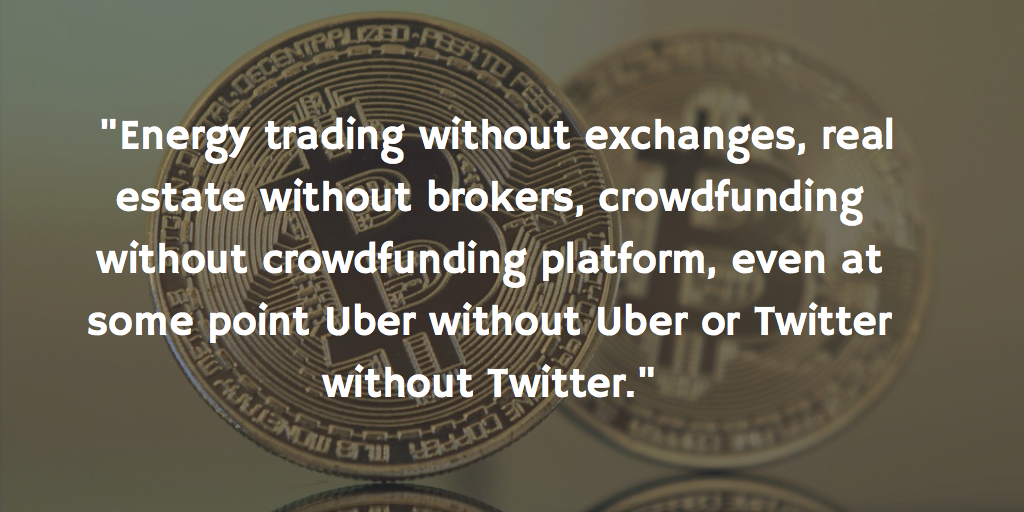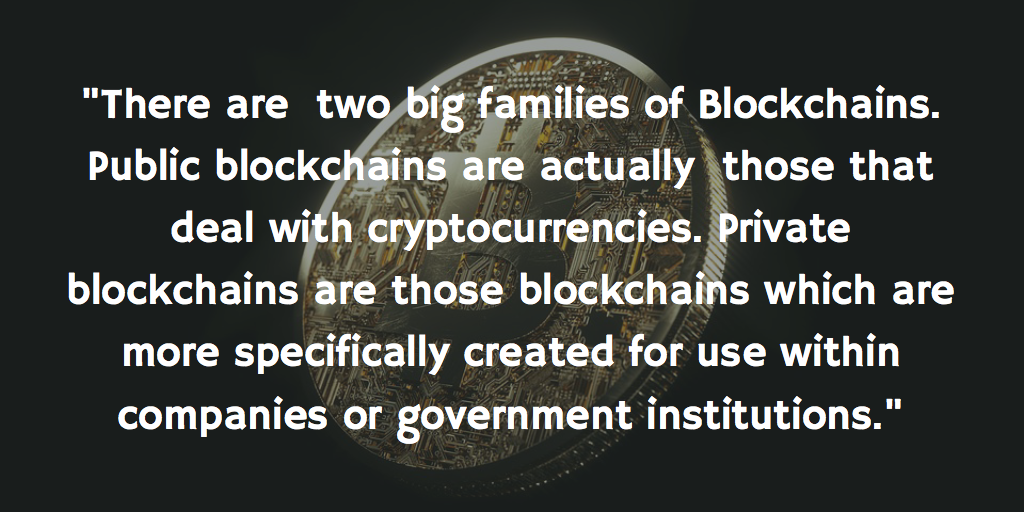What exactly is Blockchain?
Basically, Blockchain is the invention of a decentralized network that is so secure because it (a) uses cryptography against many forms of hacker attacks and (b) has a consensus algorithm that creates a single truth within the network so that no participant or group of participants in that one truth can censor, manipulate, alter or delete anything. The promise of blockchain technology is that it can replace many central institutions that we have established to give us comparable security in many areas.
How does Blockchain change business models? Can you give us some examples?
Here are two examples:
1. Everledger: Everledger has put over 2 million diamonds on a blockchain to combat theft, fraud, counterfeiting and blood diamonds. The origin and route to the shop become completely traceable and should a diamond be stolen, a buyer can, for example, verify whether the seller is actually the owner. A prospective buyer can also be sure that he does not buy a blood diamond. This concept can also be extended to many things: Food, medicines and also art objects.
2. Everipedia: One of the founders of Wikipedia is now working on a blockchain-based Wikipedia called Everipedia. The difference to the “normal” Wikipedia is that the information exists decentrally on many nodes simultaneously and no state can block or censor so easily. Contributors receive monetary remuneration for their work on the basis of IQ tokens.

Who are the winners and losers of blockchain development?
That is a very broad question. As a secure, digital “notary”, Blockchain can theoretically replace intermediaries in many areas. The technology offers a secure, complete, very difficult to manipulate and programmable database for the storage and transmission of data. The following scenarios are conceivable: Energy trading without exchanges, real estate without brokers, crowdfunding without crowdfunding platform, even at some point Uber without Uber or Twitter without Twitter.
Essentially, the technology of (public) blockchains is a move away from the classic client-server model where a central place (e.g. a company) manages the data and gives clients access to it, towards a decentrally organized system. These create through consensus algorithms the decentralized organization of network participants and thus enable many new business models. Decisive features here are that in principle everyone in the network can earn money with it and the users become master of their own data again.
In other areas, a lot of complex processes, evidence, regulation and governance can be reduced because you can simply rely on the information to be available, accurate and unfalsifiable.
For existing companies, the winners are those who can use blockchain technology to improve their processes, speed them up and reduce costs. So it always depends on the application. In the long run, so-called rent seekers, which profit from inefficient structures, will lose out. And there are actually surprisingly many of them.
There are also political and social aspects. The aforementioned Everipedia aims to prevent certain states from censoring or manipulating their content.
Are there case studies where the implementation of the blockchain has been successful and is already making a profit?
Much is still in experimental phases and most companies are working on PoCs and pilots. Depending on the economic sector, there are good examples. Fizzy from AXA where you can automatically take out Smart Contracts based flight delay insurance or the refugee camp Za’atari in Jordan where you can create a digital identity for people on a blockchain via Iris Scan and then buy it, also on a blockchain basis. According to their own statements, this saves them millions in costs, which then benefit the people.
What exactly are PoCs?
Proof of concepts. In other words, the actual implementation of theoretical blockchain application cases. We are in the phase in which these will be increasingly implemented, later the whole thing will be used broadly and scalably.

What is the difference between public and private blockchain?
These are the two big families of Blockchains. Public blockchains are actually always those that deal with cryptocurrencies. They are “public” because every participant can get in and out of the network without any administration being able to determine who can get in. Public blockchain networks are anonymous/pseudonymous per se. In order for a public blockchain to have the right incentives to work, these use cryptocurrencies, which are paid out to those who keep the network intact and verify transactions, as with Bitcoin. Private blockchains are those blockchains which are more specifically created for use within companies or government institutions. The most important example is Hyperledger (Linux, IBM, etc.). There the participants are not anonymous/pseudonymous and these are specifically suitable for use in companies (data protection, privacy, other regulations).
Many people are interested in the topic blockchain but are not sure where they should get information from. What channels do you use to inform yourself about the topic?
Personally, I primarily use LinkedIn and Twitter because of their efficient algorithms. If you are looking for an introduction, you will find a large number of useful books, wikis, YouTube videos or courses that you can attend.
Thank you very much for the interesting conversation.


